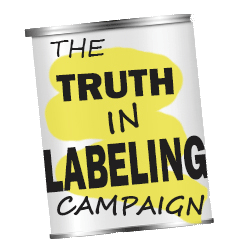According to an article by Jackie Salo in the November 1, 2021 New York Post, the FDA has a panel that approves food and drugs submitted to them. At least that’s what I took from her article, “FDA panel approves Pfizer’s COVID vaccine for kids ages 5-11.”
I was truly impressed. Although the article didn’t name the panel members, I thought there might be some real people from the FDA involved. And there might even be records in the Federal Register of past meetings held by panel members, and maybe even discussion of the data they had considered before making their recommendation.
But here’s the rub. If you ask the FDA about the safety of monosodium glutamate or the free glutamic acid in it, the FDA will respond with the statement that MSG is “safe.” And most often they will offer as evidence an allegedly “independent” review done by the Federation of American Societies for Experimental Biology, or FASEB, for the FDA by persons with serious conflicts of interest – an “independent” review that was rejected by the FDA and sent back to FASEB for an additional year’s study. Or they will offer something called “Questions and Answers on MSG” that contains no evidence/data but instead reads like an excerpt from the glutamate-industry propaganda that is widely circulated by the U.S. manufacturer of MSG.
So, I decided to ask the FDA for the evidence – the data – behind making the assertion that MSG is “safe,” and spent the whole day Monday searching for someone who could answer that question – or even someone who could tell me how to ask that question. And before FDA closing time on Monday, I had filed the following Freedom of Information Act (FOIA) request:
“Requested are copies of data used by the FDA for determining to give GRAS (generally recognized as safe) status to free glutamic acid used in food. Requested also are copies of data used by the FDA for determining to give GRAS (generally recognized as safe) status to monosodium glutamate (MSG) and other ingredients that contain free glutamic acid.
“Also requested are copies of the scientific procedures used to produce those data.
“According to its U.S. manufacturer, the free glutamic acid produced by genetically modified bacteria for use in monosodium glutamate (MSG) was first used in food in 1957. Since neither it nor its ensuant MSG had been used in food prior to that time, the newly developed MSG and manufactured free glutamate (MfG) could not have been found to be safe by reason of a history of safe use. It is not possible for MSG produced in this manner to have been found safe by reason of a history of safe use.
“According to the Federal Food, Drug, and Cosmetic Act and the FDA Code of Federal Regulations, the use of a food substance may be GRAS only through scientific procedures or, for a substance used in food before 1958, through experience based on common use. I am not familiar with any data gathered through scientific procedures that demonstrate that free glutamic acid – which neuroscientists recognize as an excitatory – brain damaging – amino acid, is “safe.” It is for that reason that I ask you to please send me all data, complete with the scientific procedures used to produce those data, that establish that free glutamic acid, MSG, or any other free-glutamate-containing food ingredient has met the requirements established by the FDA for establishment of GRAS status. I don’t believe that such data exist.”
The FOI request was submitted electronically. Turnaround time should be 2-3 days, unless, of course, the FDA is short-staffed as they usually are when the Truth in Labeling Campaign asks for information.
In the meantime, I spent the evening anticipating just how the FDA would respond to a question about the safety of an excitotoxic – brain damaging – amino acid. They’ve had fifty years’ experience fronting for the glutamate industry (1), and having chosen to ignore three Citizen Petitions filed with the FDA requesting that the FDA strip GRAS status from free glutamic acid, MSG and the other ingredients that contain free glutamic acid (2), I would expect them to be extremely creative.
They will of course offer the paper titled “Questions and Answers on Monosodium glutamate (MSG)” that is posted on the FDA website. It has the requisite number of MSG-is-safe statements and talks about reviews by authoritative bodies (all of whom did no reviews of data, but reviewed material brought to them by the FDA or other agents of the glutamate industry). They will undoubtedly refer to the many negative studies that failed to conclude that MSG is harmful, without mentioning that in their double-blind studies, their agent in charge of glutamate-industry research supplied his researchers with placebos containing aspartic acid, an excitotoxic amino acid that produces both brain damage and reactions identical to those cause by the excitotoxic glutamic acid in MSG.
We’ll keep you posted.
Adrienne Samuels
References
Industry’s FDA https://www.truthinlabeling.org/fda.html
Webpage petition post summaries https://www.truthinlabeling.org/petition.html


